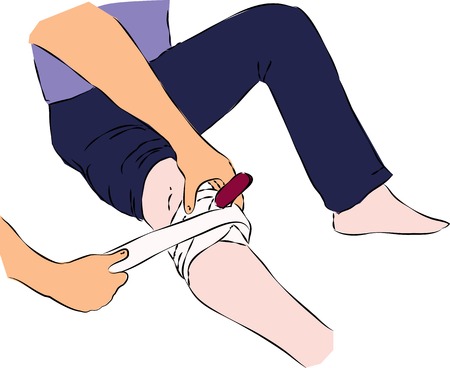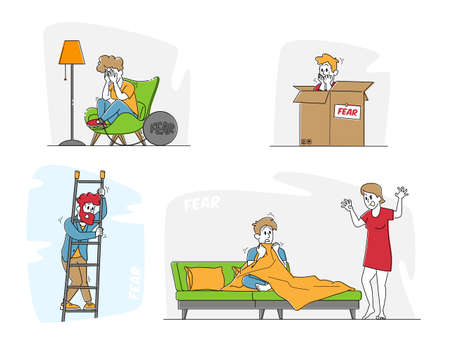Introduction to TENS and Labour Pain
Transcutaneous Electrical Nerve Stimulation, commonly known as TENS, is a non-invasive method of pain relief that has gained increasing attention in India, particularly among expecting mothers. A TENS machine works by delivering mild electrical impulses through electrodes placed on the skin, which helps to interrupt pain signals sent to the brain. In the context of labour, where pain can be intense and overwhelming, TENS offers an alternative or complementary option to traditional pain management techniques. With growing awareness about natural birthing methods and minimal medical intervention, many Indian families are considering TENS as a safe, drug-free solution for labour pain relief. Its relevance in India is underscored by cultural preferences for less invasive practices and the importance of supporting women through childbirth in both urban hospitals and rural settings. As Indian healthcare providers increasingly recommend patient-centred care, understanding the benefits and applications of TENS during labour becomes essential for expectant mothers and their families.
Cultural Perceptions of Labour Pain Relief in India
In India, labour pain management is deeply influenced by cultural beliefs, family traditions, and varying levels of awareness regarding modern pain relief methods such as the TENS machine. Traditionally, childbirth is viewed as a natural process where enduring pain is often associated with maternal strength and familial pride. Many families, especially in rural regions, expect women to tolerate labour pain without intervention, believing it to be an essential part of motherhood. However, urbanisation and increased access to healthcare information are gradually shifting these perspectives. Awareness about safe and non-invasive options like TENS machines is growing, particularly among younger generations and urban families who seek a more comfortable birthing experience for mothers.
Comparison of Traditional and Modern Attitudes
| Aspect | Traditional View | Modern View |
|---|---|---|
| Perception of Labour Pain | Pain is natural; should be endured | Pain relief is acceptable and desirable |
| Role of Family | Elders influence decisions; may discourage interventions | Spouses/partners involved; open to new methods |
| Awareness of Options | Limited knowledge; reliance on home remedies | Increasing awareness; interest in medical technology like TENS |
Family Influences and Decision Making
The role of family cannot be underestimated in India’s childbirth practices. Elders, particularly mothers-in-law or senior female relatives, often guide decisions about pain relief during labour based on their own experiences and cultural norms. This can sometimes delay acceptance of modern technologies such as the TENS machine, despite their proven benefits. However, antenatal education classes and counselling sessions conducted by healthcare professionals are helping families understand the advantages of evidence-based pain relief options.
A Growing Shift Towards Informed Choices
With increasing literacy rates and greater exposure to global healthcare standards, Indian women are becoming more proactive in seeking information about labour pain management. This shift is fostering an environment where both traditional wisdom and scientific advancements coexist. As more families witness positive outcomes from using devices like the TENS machine, cultural perceptions are expected to evolve further towards acceptance and empowerment in childbirth choices.

3. How TENS Machines Work During Labour
TENS (Transcutaneous Electrical Nerve Stimulation) machines are becoming increasingly popular in India as a natural and non-invasive method for managing labour pain. Understanding how these devices work can help expecting mothers make informed decisions about their use during childbirth. TENS machines function by delivering mild electrical impulses through electrodes placed on the skin, usually on the lower back where labour pain is most commonly felt. These impulses stimulate the nerves, which can help to block or reduce the transmission of pain signals to the brain.
The mechanism behind TENS is based on the “Gate Control Theory” of pain, which suggests that stimulating non-painful sensory pathways can close the neurological “gates” to painful input, thereby reducing pain perception. In practical terms, when a mother uses a TENS machine during labour, she typically attaches adhesive pads to her lower back, adjusting the intensity and frequency of stimulation using a hand-held control unit. This allows for personalised comfort and flexibility as contractions change in intensity.
In addition to providing pain relief, TENS machines offer safety features that make them suitable for use in Indian maternity settings. The devices are battery-operated, portable, and do not interfere with other medical interventions or medications. Most models come with clear instructions and preset programmes specifically designed for labour. It is essential, however, for mothers to consult their doctor or midwife before using a TENS machine to ensure it is appropriate for their individual health situation.
For many Indian families seeking safe and effective options during childbirth, TENS machines present a valuable tool. They allow women to remain mobile and active during early labour—a key aspect in many Indian birth practices—and empower mothers to participate actively in their own comfort management. By understanding how TENS technology works, expecting mothers and their families can approach labour with greater confidence and peace of mind.
Benefits and Limitations of TENS in Indian Maternity Care
The use of TENS (Transcutaneous Electrical Nerve Stimulation) machines for labour pain relief is gaining attention in India. While this technique offers several advantages, it also comes with its own set of challenges that are particularly relevant to the Indian healthcare context.
Advantages of TENS Machines in Labour
| Advantage | Description |
|---|---|
| Non-Invasive | TENS does not require injections or medications, making it a safe option for mothers and babies. |
| User Control | Mothers can control the intensity and duration of stimulation based on their comfort level, providing a sense of empowerment during labour. |
| No Medication Side Effects | Since TENS is drug-free, there is no risk of drowsiness or other medication-related side effects for either the mother or newborn. |
| Easy Integration | TENS can be used alongside other pain management methods such as breathing exercises or epidurals, offering flexible options for maternity care. |
Challenges and Limitations in the Indian Context
| Limitation | Description |
|---|---|
| Accessibility | Access to TENS machines may be limited, especially in rural hospitals or government health centres where resources are scarce. |
| Lack of Awareness | Many expecting mothers and even some healthcare providers are not fully aware of TENS as an option for labour pain relief. |
| Cultural Acceptance | Cultural beliefs and family influences often guide childbirth practices, which may affect the acceptance and adoption of TENS technology. |
| Cost Considerations | The initial investment in TENS devices might be a concern for lower-income families, despite its long-term cost-effectiveness compared to repeated medications. |
| Training Needs | Nurses and midwives may require additional training to ensure proper use and guidance for patients using TENS machines during labour. |
Practical Tips for Indian Mothers and Families
- If you are interested in using a TENS machine for labour pain, discuss this option early with your doctor or midwife.
- Ask about the availability of TENS devices at your chosen hospital or birthing centre.
- Consider attending prenatal classes where pain relief options, including TENS, are discussed to make informed decisions suitable for your needs and cultural values.
- If purchasing a personal TENS machine, ensure it is approved by local health authorities and you receive instructions from qualified professionals.
5. Guidance for Indian Mothers: Preparation and Usage
When considering the use of a TENS machine for labour pain relief, Indian mothers and families should approach the decision thoughtfully, taking into account both medical advice and cultural preferences. Here are some practical suggestions and culturally relevant advice to help ensure a safe and positive experience:
Consult Your Healthcare Professional
Before using a TENS machine during labour, it is essential to discuss your plan with your obstetrician or midwife. Many hospitals in India are becoming more familiar with TENS as a pain relief option, but policies may vary between private clinics and government hospitals. A healthcare professional can guide you on whether TENS is suitable based on your medical history and pregnancy condition.
Choose a Reliable Device
Select a TENS machine from a reputable brand that meets safety standards. In India, devices can be purchased online or at medical supply stores. Make sure the device comes with clear instructions in English or your local language, and check for after-sales service availability.
Understand How to Use TENS Effectively
Learn about correct pad placement and how to operate the controls before labour begins. You may ask your doctor or nurse for a demonstration during an antenatal visit. Practising ahead of time will help you feel confident when labour starts. It’s also helpful to involve your spouse or a family member so they can assist you during contractions.
Respect Traditional Practices
Many Indian families have their own rituals and beliefs surrounding childbirth. Using a TENS machine does not conflict with traditional practices like chanting mantras, having elders present, or following dietary customs. Feel free to combine TENS therapy with these cherished cultural practices for holistic comfort.
Prepare Early
Packing the TENS unit in your hospital bag along with spare batteries and gel pads is important. Check if your chosen birthing facility allows personal medical devices in the delivery room—some may require prior permission.
Keep Communication Open
Share information about TENS with family members who may not be familiar with this technology. Reassure them that it is non-invasive and does not interfere with natural birth processes, which can ease concerns among elders or those who value traditional approaches.
Caring for Yourself Holistically
Remember, managing labour pain is a personal journey. Using a TENS machine can be part of a broader plan that includes support from loved ones, breathing techniques, and maintaining faith in your body’s ability to give birth. Always put your comfort and well-being first, and seek guidance from trusted healthcare professionals throughout the process.
6. Expert and Community Perspectives in India
When considering the use of TENS machines for labour pain relief in India, it is important to look at the insights from gynaecologists, midwives, and mothers who have experienced TENS during childbirth. Their perspectives reflect a blend of medical expertise, traditional values, and personal experiences unique to Indian society.
Expert Opinions from Indian Gynaecologists
Many gynaecologists across India acknowledge that TENS machines offer a non-pharmacological option for managing labour pain, especially for mothers who wish to avoid medications or epidurals. According to Dr. Priya Sharma, a leading obstetrician in Mumbai, “TENS can be very helpful for women seeking a more natural birth experience. It allows mothers to remain alert and active during labour.” However, experts also emphasise that TENS should be used as part of a broader pain management plan and always under professional guidance.
Midwives’ Experiences with TENS in Maternity Care
Indian midwives, especially those practising in private birthing centres or urban hospitals, have reported positive outcomes when supporting women with TENS machines. Sushma Devi, a senior midwife from Bengaluru, shares, “Women feel empowered when they can control the intensity of their pain relief using the TENS device. It is particularly appreciated by first-time mothers and those with mild to moderate pain.” Midwives also note that TENS is culturally acceptable among families who prefer less invasive interventions during childbirth.
Mothers’ Stories: Real-life Experiences
Mothers who have used TENS during labour in India often share encouraging feedback. For instance, Aarti from Pune recalls, “The gentle pulses from the machine helped me focus on my breathing and stay calm through contractions. My family was initially unsure about using technology during delivery, but after seeing how comfortable I was, they became supportive.” Such stories highlight how awareness and education about TENS are gradually increasing acceptance within Indian communities.
Cultural Sensitivity and Local Practices
It is essential to recognise that each woman’s preferences may be influenced by her cultural background and family traditions. Healthcare providers recommend open conversations with expecting mothers and their families to ensure comfort and respect for individual choices. As Dr. Anil Kumar from Delhi points out, “We must balance modern medical options like TENS with sensitivity to our patients’ beliefs.” This approach helps bridge the gap between modern technology and traditional Indian values in maternity care.
In summary, expert and community perspectives show growing interest in TENS as an effective tool for labour pain relief in India. With continued awareness, education, and culturally sensitive support from healthcare professionals, more Indian mothers can benefit from this safe and empowering option during childbirth.
7. Conclusion and Further Resources
The use of TENS machines for labour pain relief is gaining popularity among expectant mothers in India due to its non-invasive, drug-free approach and ability to empower women during childbirth. While it may not entirely eliminate labour pain, it can significantly reduce discomfort and provide a sense of control during delivery. Indian hospitals, midwives, and doulas are increasingly familiar with TENS technology, making it more accessible for families across the country.
Key Takeaways for Indian Families
- TENS is safe when used correctly and under medical guidance.
- It can be used in both hospital and home birth settings.
- TENS does not interfere with mobility or breastfeeding.
- Discuss your interest in TENS with your doctor or midwife early in your pregnancy journey.
Further Information in Local Languages
If you wish to learn more about TENS machines for labour pain relief, many resources are now available in local Indian languages such as Hindi, Tamil, Telugu, Bengali, Marathi, Kannada, Malayalam, and Gujarati. Hospitals, maternity clinics, and government health websites often provide brochures, videos, and helpline numbers to support mothers and families. Some recommended sources include:
- National Health Portal (NHP) – Offers multilingual resources on maternal health.
- State Government Health Department websites – Often have downloadable guides and FAQs.
- Major maternity hospitals – Many private and public hospitals provide patient education materials in regional languages.
- Online parenting forums such as BabyChakra and Momspresso – Share experiences from real Indian mothers about using TENS during labour.
Final Reminder
Every woman’s labour experience is unique. It is important to consult with your healthcare provider before deciding on the use of TENS or any pain relief method. Stay informed, ask questions in your preferred language, and choose what feels right for you and your baby. Wishing you a safe and empowering birthing journey!


